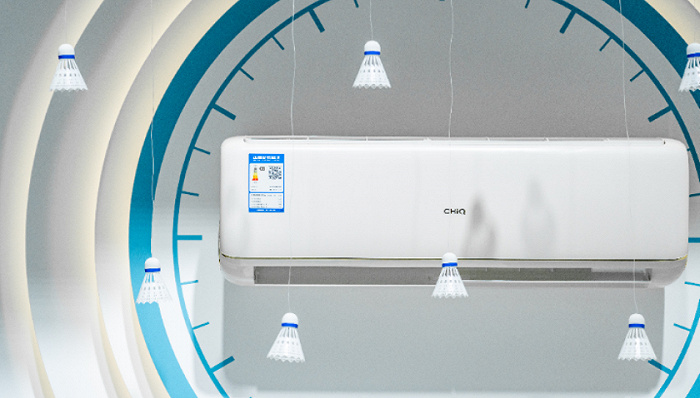Recently, Hefei Kobayer New Information Co., Ltd. (hereinafter referred to as Kobayer, the company) reformed the restoration of the second round of inquiries at the Beijie Exchange. Guoyuan Securities is a sponsoring institution.
Kobayer is a high-tech enterprise engaged in the research and development, production, and sales of amateur modified plastics and color masterbatches. Its products are widely used in household appliances, consumer goods, automotive parts, and other fields. Its main customers include well-known enterprises such as Sichuan Changhong, Midea Group, TCL, Whirlpool, and Hisense Group.
From 2020 to January September 2023 (filing period), Kobayer’s business expenses were 178 million yuan, 262 million yuan, 307 million yuan, and 262 million yuan, respectively, with net profits of 27.5564 million yuan, 26.5549 million yuan, 29.231 million yuan, and 28.1838 million yuan, respectively.

Through sorting out the interface messages, it was found that there is a risk of single customer self-reliance in Kobayer, with downstream sales spreading to different regions. During the reporting period, Kobayer was continuously in a state of overcapacity and childbirth, and there may be a risk of a decline in gross profit margin after the period.
40% of expenses come from a single customer, and the gross profit margin may decline in the future
During the complaint period, the top five customers of Kobayer’s sales accounted for 73.48%, 80.00%, 80.93%, and 78.73%, respectively. Among them, Sichuan Changhong was the largest customer in each period, with sales accounting for 33.33%, 28.05%, 43.26%, and 42.58%, respectively, and the sales amount has increased significantly year by year.
According to the inquiry, the suppliers of raw materials for the upstream of Kobayer are mainly large petrochemical enterprises or commercial enterprises, and the downstream customers are mainly large-scale red home appliance delivery enterprises. The company’s bargaining power with upstream and downstream mutual aid parties is relatively limited. There are many other mutual aid opponents in the mall, and the company currently mainly stops selling and pricing products in the form of capital gains.
During the complaint period, the gross profit margin of Kobayer’s main business was 28.42%, 20.73%, 16.95%, and 19.84%, respectively. In 2021 and 2022, the gross profit margin of the company continued to decline, while in 2023, the gross profit margin increased. During the reporting period, the gross profit margin fluctuated significantly, and the company believed that the main factors were the price fluctuations of raw materials and the structural effects of product sales.
The price of Mongolian raw materials has been declining, and from 2021 to 2023, the selling prices of the company’s modified plastics, color masterbatch, and other products have shown a continuous downward trend.
During the complaint period, the proportion of the company’s direct material cost to the main business cost was over 90%, which is the main component of the company’s business cost. Therefore, the fluctuation of the price of raw materials has a significant impact on the company’s product cost. The main raw materials of the company are synthetic resins such as PP, PS, and ABS. According to public information, the prices of bulk chemical materials such as PP showed a slight downward trend in 2024.
The gross profit margin is on a roller coaster, and the selling prices of departmental products have continued to decline. The prices of major raw materials are also decreasing, and the gross profit margin may decline after the Kobayer period.
Furthermore, it should be pointed out that the company’s sales have spread to the East China region, accounting for over 90%. During the reporting period, the proportion of sales in the East China region of the company was 95.15%, 92.87%, 89.67%, and 93.43%, respectively.
The R&D utilization rate is higher than that of non comparable companies, with nearly 90% of R&D personnel with low academic qualifications
From 2020 to January September 2023, the R&D expenses of Kobayer were 11.0565 million yuan, 11.9529 million yuan, 16.3624 million yuan, and 11.6325 million yuan, respectively, accounting for 6.22%, 4.57%, 5.34%, and 4.44% of business expenses. It should be pointed out that during the complaint period, the R&D utilization rate of Kobayer was consistently higher than the average of the company. During the same period of the complaint period, the average R&D utilization rates of the company were 3.53%, 3.43%, 3.64%, and 3.65%, respectively.
Who is supporting the higher R&D utilization rate compared to the company?
Kobayer stated that highly educated and industry experienced R&D personnel mainly focus on practical research, skill development, and analytical resolution planning during the R&D process; And R&D personnel with lower academic qualifications and relatively shallow resumes mainly focus on planning and implementing or supporting R&D breaks.
According to Kobayer’s inquiry about the restoration, by the end of 2021, the proportion of R&D personnel with associate degree or below in the company was as high as 90.48%, while there were only two R&D personnel with undergraduate degree. In addition, it should be pointed out that R&D personnel who did not have a master’s degree in that year were not included. By the end of 2023, the company will have 2 master’s degree R&D personnel, 2 undergraduate R&D personnel, and 19 R&D personnel with associate degree or below.
It is worth mentioning that during the complaint period, surgical Bayer was continuously in a state of overcapacity in childbirth. According to the disclosure, the total calculated production capacity utilization rates of the company’s main products, modified plastics and color masterbatch, during the complaint period were 105.51%, 122.63%, 146.40%, and 117.63%, respectively. The company’s production capacity for each phase is approved, with capacities of 20000 tons, 20300 tons, 21800 tons, and 26300 tons, respectively.
In the restoration of the inquiry letter, Kobayer stated that in response to the company’s actual annual production exceeding the approved capacity, the company has stopped consolidation.